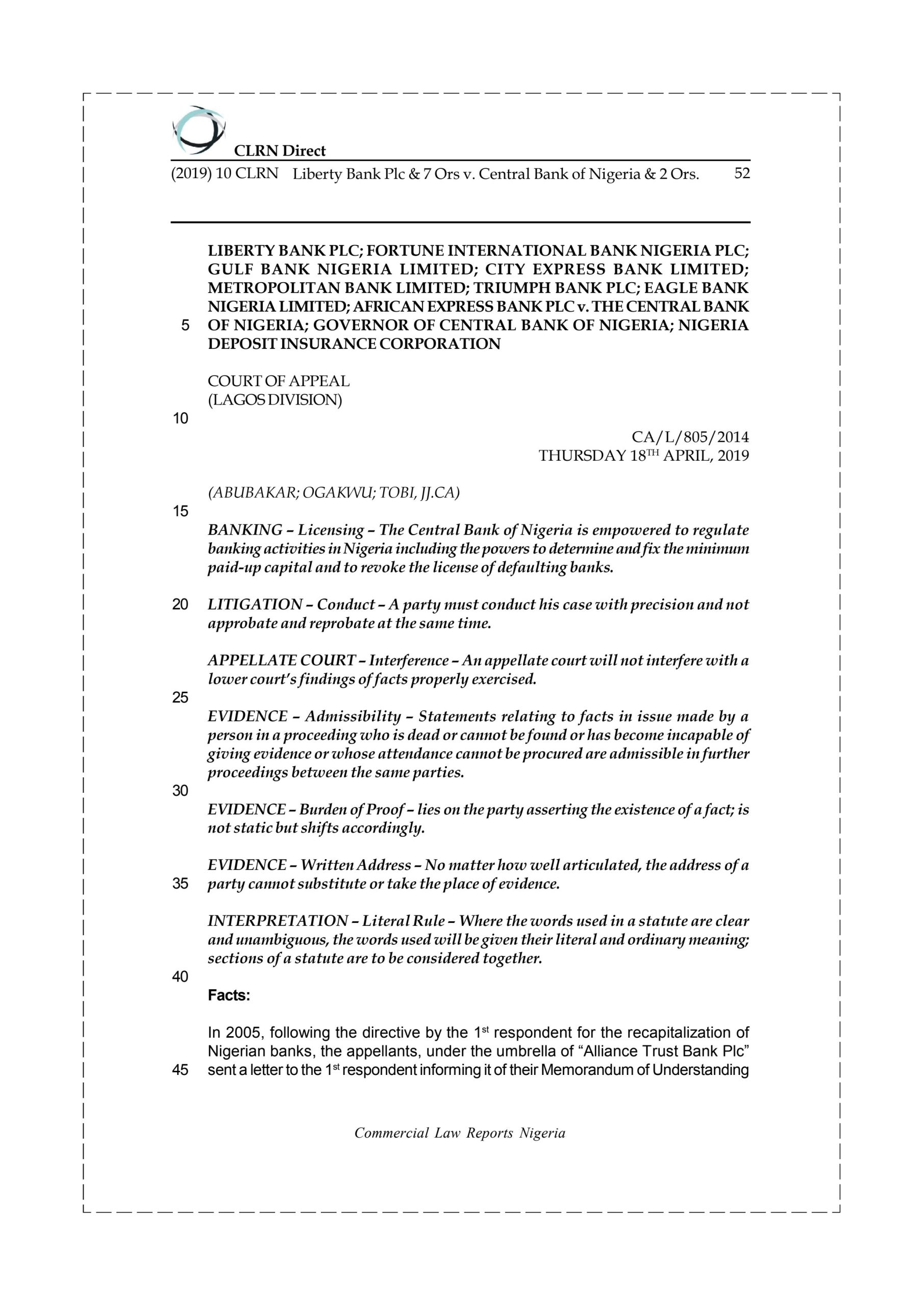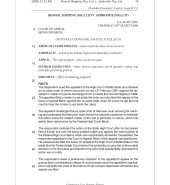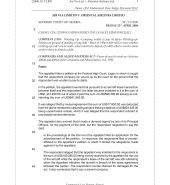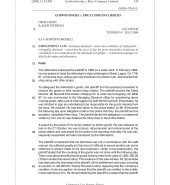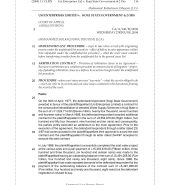-

Usi Enterprises Limited v. Kogi State Government & 2 Ors
- kg
1 × ₦300
-

Fortune Int’l Bank Plc v. Pegasus Trading Office & 2 Ors
- kg
2 × ₦300
-

MEKWUNYE v. EMIRATES AIRLINES
- kg
1 × ₦300
-

Nigergate Limited v. Niger State Government & 2 Ors
- kg
1 × ₦300
LIBERTY BANK PLC & 7 ORS. v. CENTRAL BANK OF NIGERIA & 2 ORS.
₦300
In Stock
Facts:
In 2005, following the directive by the 1st respondent for the recapitalization of Nigerian banks, the appellants, under the umbrella of “Alliance Trust Bank Plc” sent a letter to the 1st respondent informing it of their Memorandum of Understanding (MOU) concerning a proposed merger. The appellants applied to the 1st respondent for an Approval-in-Principle (AIP) for the formation of “Alliance Bank Plc” and promised to execute the MOU. Via a letter, the 1st respondent granted the AIP on the 21st of December, 2005 albeit with conditions attached. The 1st respondent directed that all the banks involved in the merger must deposit their licenses with it and that the expected recovery of N10,500,000,000.00 (Ten Billion, Five Hundred Million Naira) “insider credit” must be achieved on or before the 30th day of December, 2005 and escrowed with the 1st respondent.
Consequent upon the AIP, the appellants applied to the Securities and Exchange Commission (SEC) for approval of their proposed merger and the latter granted them three months period to complete the merger. However, before the expiration of the three months, the 1st respondent withdrew the appellants’ individual license and halted the merger exercise. In a letter dated the 6th day of January, 2006 sent to the appellants, the 1st respondent terminated the proposed Alliance Bank Plc citing non-fulfilment of the conditions attached to the AIP.
The 1st respondent alleged that one of the banks, the 8th appellant failed to deposit its banking license with the 1st respondent. Furthermore, the 1st respondent stated in the letter that the appellants failed to escrow the agreed N10,500,000,000.00 (Ten Billion, Five Hundred Million Naira) insider credit with it and that the lists of proposed board members consisted of persons unfit for such appointments who had been involved in running the banks aground. On the basis of these reasons, the 1st respondent revoked the license and brought the merger exercise to a close. The appellants were aggrieved and filed a suit against the respondents at the Federal High Court, Lagos Division seeking declarative and injunctive reliefs. The appellants made an allegation of discrimination, bias and bad faith against the 1st and 2nd respondents in the exercise of their powers. The matter went to trial and the matter was at the stage of adoption of written addresses when the trial judge recused himself. Another judge took over the matter and parties agreed to adopt their written addresses and continue with proceedings. At the end of trial, the court dismissed the claims of the appellants on the ground that they lacked merit.
The appellants were dissatisfied and filed a notice of appeal at the Court of Appeal, Lagos Division. One of the issues for determination is whether the trial court was right in dismissing the appellant’s case on the basis that the allegation of discrimination, bias and bad faith made by the appellants against the 1st and 2nd respondents were not substantiated.
